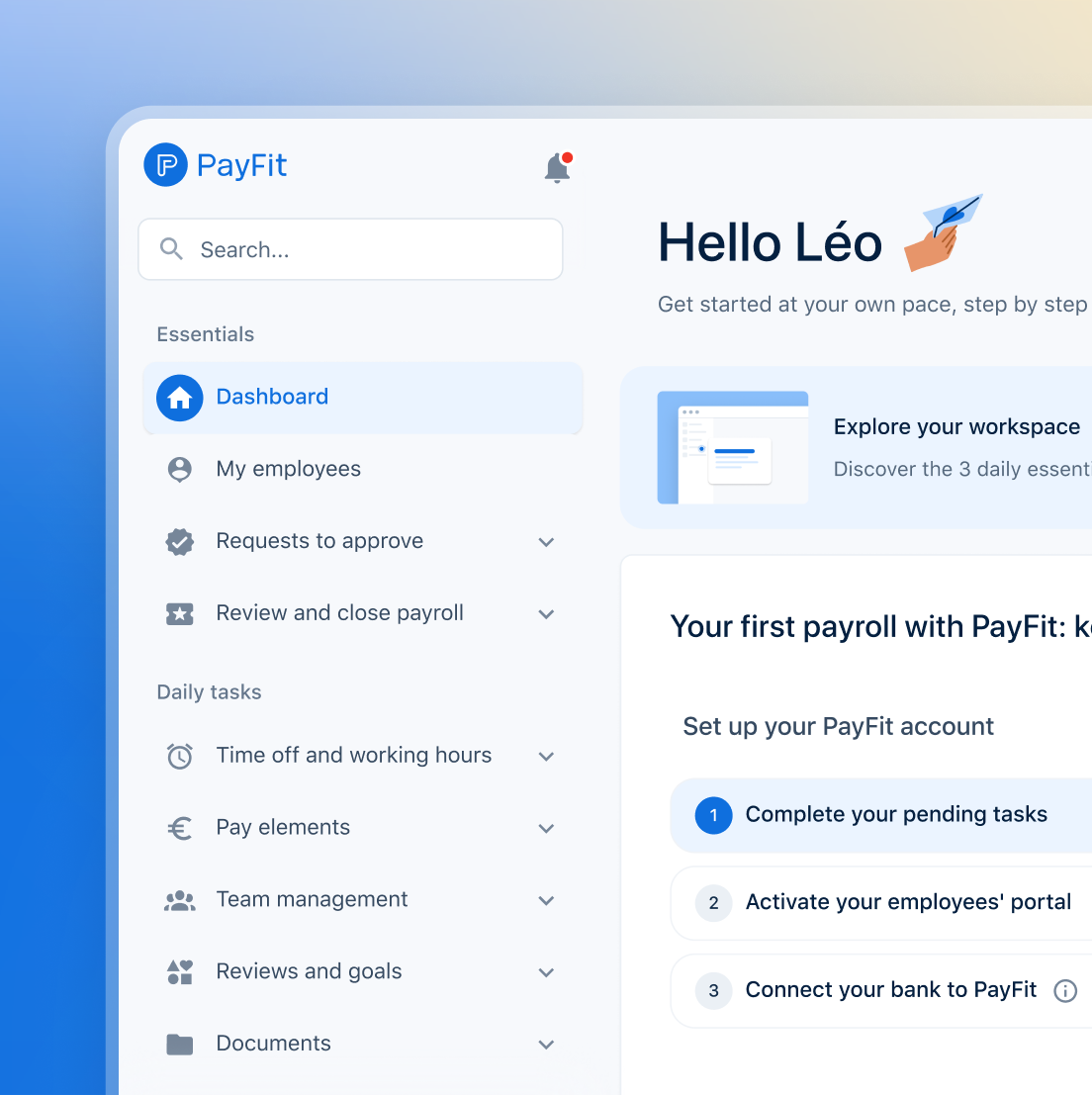✨ Health insurance, now in PayFit - learn more
💷 All the rates & thresholds you need to know for 25/26...right here
✨ The Payroll Journey: Start, Scale & Succeed Globally - learn more
✨ Health insurance, now in PayFit - learn more
💷 All the rates & thresholds you need to know for 25/26...right here
✨ The Payroll Journey: Start, Scale & Succeed Globally - learn more


For leaders of a growing business in the UK, the whirlwind of growth can be all-consuming. Yet, amidst the operational demands, a critical human resource function often gets sidelined. Viewing Human Resources as mere administration is a mistake growing businesses can ill afford. A proactive HR strategy is not a luxury, it is the bedrock of a thriving company. How you manage your people, support your team and shape your workplace culture will directly impact your success, making understanding the importance of HR in a growing company essential for growth and happiness all round.
In the early days, HR duties in a small company are often informal tasks. But as your team grows, so does the complexity of people management. How is HR in small businesses different from large companies? Well, the core principles—to attract, retain, and develop the best talent—remain. However, the approach in a small business is more hands-on and culturally attuned. A robust human resource framework will then provide essential support for your growth. It helps ensure that as your business scales, your team’s performance, engagement and compliance do so too. It’s about creating a positive workplace culture where every employee and member of staff feels valued and can do their best work.

For a small business, setting up effective HR processes doesn’t need to be complex. Focus on the fundamentals first. What are the key HR practices every small business should implement to ensure success?
Compliance with UK Employment Law: This is non-negotiable. You need clear, written policies and procedures. From compliant employment contracts to working time regulations, and right-to-work checks, getting the law wrong creates significant legal risk. You must ensure compliance to protect your company.
Effective hiring and onboarding: Your hiring process is your gateway to talent. A structured approach helps you attract the right people. Once hired, a comprehensive employee onboarding process is crucial. It integrates your new employees into the team and your company culture, setting them up for success from day one.
Performance management and development: Regular performance reviews are not about criticism, they are there to foster growth and development. These conversations help set clear expectations, offer feedback, and identify specific training needs. This commitment to your team's skills and career development fosters a culture of continuous improvement, and is a powerful retention tool that shows your employees you are invested in them.

As your business grows, its informal, close-knit feel can be hard to maintain. This is where consciously building a strong company culture becomes a critical HR strategy. Culture is the shared set of values, attitudes, and practices that characterise an organisation. It’s how your team experiences working for you every day.
A positive workplace culture doesn’t happen by chance, it requires proactive management and support. It starts with defining the core values you want your business to live by. Communicate these values consistently, from the hiring process through to team meetings.
Encourage open communication and create safe channels for employee feedback. This helps your people feel heard and valued. Furthermore, make it a point to recognise and reward staff whose actions and performance exemplify the culture you want to create. This reinforcement is key.
Investing in team development and social activities also strengthens bonds and makes for a more collaborative and supportive workplace. This is your best defence against a disengaged workforce and a powerful tool for attracting new talent.
What HR challenges are most prevalent in small companies? Limited time, resources, and expertise top the list. This can make it hard to attract and retain top talent, manage employee relations, and ensure legal compliance. So, how can growing businesses manage HR effectively with limited resources? Technology and the right support can help.
Modern HR software can automate many time-consuming administrative tasks and streamline HR processes such as payroll and performance reviews. This will free up valuable time for you to focus on strategic people management. For more complex issues, outsourcing to specialist HR services can provide further expert support when you need it most, offering a cost-effective resource for your growing business.
The duties of a HR manager in a growing company go beyond administrative tasks. To be effective, the human resource function must integrate with the wider business. The HR team should be working with:
Finance: On initiatives such as workforce planning and creating competitive compensation and benefits packages. This partnership helps ensure your people strategy is financially sound.
Marketing: To build a strong employer brand that attracts the best talent, your company culture is a powerful marketing tool.
Operations: To understand the skills and team structures needed to do your business’ work effectively. This is key for identifying training needs and planning for future growth.
Leadership team: To ensure the people strategy aligns with the overall business strategy. HR must provide insights into talent management and workplace culture in order to support long-term success.
When does a growing business need to hire an HR professional? There’s no magic number of employees, but there are clear signs. If you spend too much time on HR tasks, face complex employee issues, or worry about legal compliance, it’s likely time to get expert help. The right support could be a consultant offering specific HR services, or a full-time manager as your team grows. The right human resource professional will provide critical support for talent management and contribute directly to your company’s growth and success.
Ultimately, investing in your people is the best investment you can make for your business. By understanding core human resource functions and implementing sound processes and policies, you can create a workplace that attracts the best talent. Empowering your staff helps them thrive, driving your business growth forward.


Compare the best payroll software for UK businesses in 2026. Discover solutions to automate compliance, support growth, & manage employees effectively.

Cloud-based payroll software helps UK businesses improve accuracy, reduce errors and maintain HMRC compliance by centralising payroll data and calculations.

Learn how to run payroll in the UK from how to register for PAYE, calculate tax and NI, send RTI submissions on time, to avoiding HMRC penalties.

We cover the principles of UK payroll accounting, as well as National Insurance rates, 2026/27 tax year compliance & how to streamline your financial reporting.

Essential guide for UK managers on payroll in human resource management, covering National Insurance changes, 2026 regulations, and compliance.

Understand exactly what is net pay, how to calculate it, and the latest UK tax and National Insurance changes for affecting your payroll.

See what's new in PayFit
New features to save you time and give you back control. Watch now to see what's possible